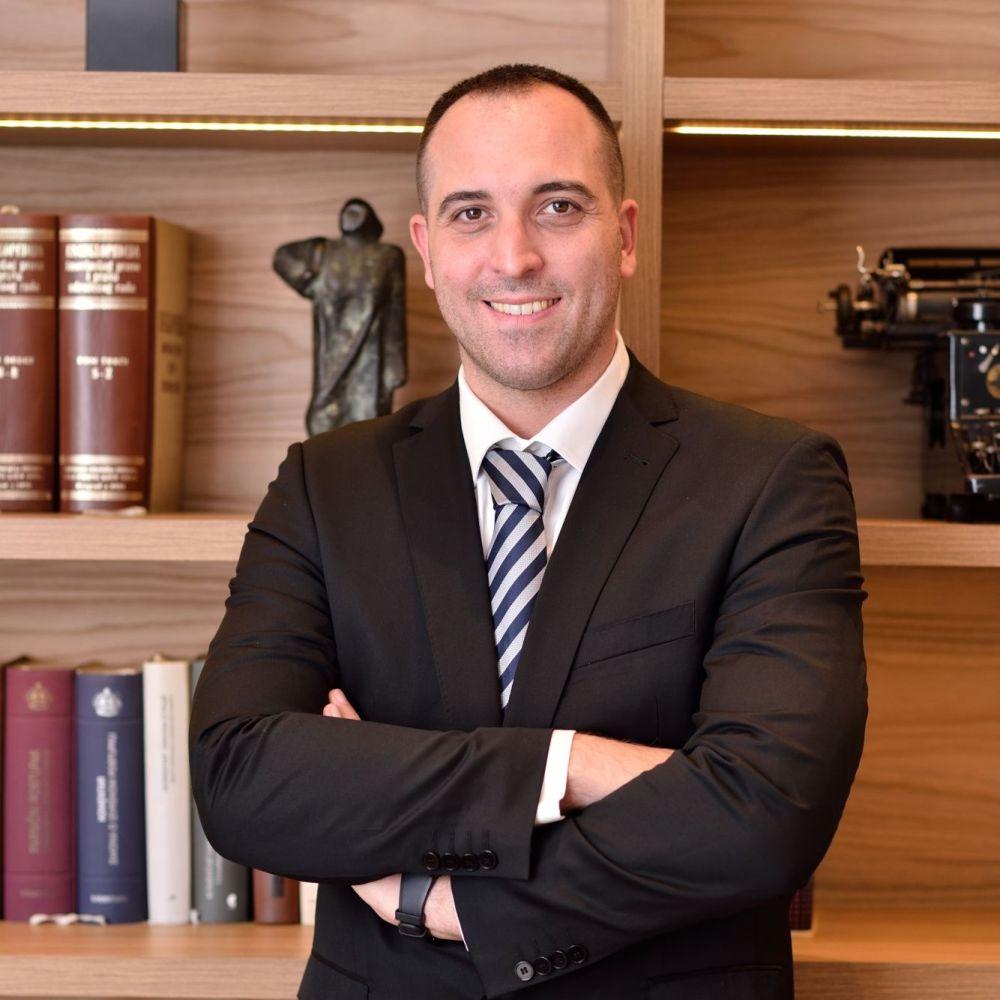
|
23.08.2024 | Teodor BURNAR
|




|
WOLEP Talk with Mr. Strahinja Selakovic (WOLEP Serbia): “I like to say that the true winner is not the one who won the case, but the one who achieved their intention or their client's intention”
WOLEP: What are the most important factors in building and maintaining a strong, trusting client relationship in Serbia's legal landscape? How do you ensure clients understand the legal process and their rights?
Strahinja Selakovic: The most important factors in building and maintaining a strong, trusting client relationship in Serbia's legal landscape include:
1. Trust and transparency: Open and honest communication with clients is key to building trust. Clients need to feel that they can rely on their lawyer and that their information will be protected.
2. Expertise and professionalism: Clients expect a high level of expertise and professionalism. This not only involves knowing the law but also the ability to clearly explain all legal options and consequences to the client.
3. Understanding clients' needs: The lawyer's ability to listen and understand the specific needs and goals of clients allows for tailored legal support.
4. Consistent communication: Regular updates on the progress of the case and possible outcomes help maintain trust and reduce anxiety for clients.
5. Ethics and integrity: Adhering to the highest ethical standards ensures that the lawyer acts in the best interest of the client, further strengthening trust.
These factors together contribute to creating stable and long-term relationships with clients in Serbia's legal environment.
Regular updates on the progress of the case and possible outcomes help maintain trust and reduce anxiety for clients
WOLEP: How do you protect your personal and professional interests while representing clients? How do you balance confidentiality with self-preservation, and which ethical guidelines do you follow?
Strahinja Selakovic: Protecting personal and professional interests while representing clients requires careful balancing between ethical obligations and self-preservation. Here's how this is achieved:
1. Adhering to ethical standards: The first step in protecting personal and professional interests is strictly following the ethical standards prescribed by the legal profession. This includes maintaining attorney-client privilege, avoiding conflicts of interest, and acting in the best interest of the client.
2. Clear agreements and boundaries: Establishing clear contractual terms with clients, including the scope of services and fees, helps protect professional interests. Defining boundaries regarding client expectations is crucial to avoiding misunderstandings and legal issues.
3. Insurance and liability: Utilizing professional liability insurance provides additional protection in case of mistakes or unfortunate circumstances that could negatively impact the lawyer.
4. Confidentiality and selective disclosure: Balancing confidentiality with self-preservation involves carefully considering what needs to be disclosed and to whom. A lawyer must be cautious in sharing information, ensuring that neither they nor their client is compromised.
5. Seeking expert advice: In complex cases or when there is a potential conflict of interest, it is important to seek advice from colleagues or relevant authorities within the bar association. This helps in making the right decisions and protecting one’s own interests.
6. Continuous education: Maintaining a high level of expertise through continuous education and staying updated on legal developments enables a lawyer to handle challenges in client representation while also protecting their own interests.
These measures help lawyers successfully balance confidentiality with self-preservation while remaining true to ethical guidelines and professional obligations.
Balancing confidentiality with self-preservation involves carefully considering what needs to be disclosed and to whom
WOLEP: When starting a new case, what initial steps do you take to assess its viability and potential challenges?
Strahinja Selakovic: When starting a new case, it is important to take several key steps to assess its viability and potential challenges:
1. Information gathering: The first step is to thoroughly collect relevant information from the client. This includes all facts, documents, and evidence that may be significant to the case. This phase is crucial for understanding the basic circumstances and laying the groundwork for further analysis.
2. Legal framework analysis: After gathering the information, the lawyer analyzes the relevant laws, regulations, and precedents related to the case. This legal analysis helps assess the legal foundation of the case and identify potential obstacles.
3. Risk assessment: Identifying potential legal, financial, and reputational risks that may arise from handling the case. This assessment helps the lawyer provide the client with a realistic overview of possible outcomes and risks.
4. Considering the client’s objectives: Understanding the client’s goals and expectations is crucial for assessing the case’s viability. If the client’s goals are not aligned with legal realities, the lawyer must clearly communicate this and propose alternative strategies or, if client insists on certain "irrational" actions, it is advisable for a lawyer to obtain a written evidence (i.e. in a form of statement signed by the client) saying that the client was advised about the matter and that the further actions will be taken under client’s sole responsibility.
5. Financial assessment: Evaluating the costs and time required to handle the case is an important aspect to consider early on. This includes assessing the economic viability for the client.
6. Review of previous cases and precedents: Researching similar cases and precedents (where applicable) can provide insights into likely outcomes and aid in strategic planning.
7. Consultation with experts: In complex cases, it may be helpful to consult with experts in specific fields to better understand the unique circumstances and challenges.
These initial steps allow the lawyer to realistically assess the viability of the case, identify potential challenges, and develop an appropriate strategy for handling the case.
Evaluating the costs and time required to handle the case is an important aspect to consider early on
WOLEP: When managing multiple cases across different domains, how do you prioritize tasks and ensure each case receives proper attention?
Strahinja Selakovic: When managing multiple cases across different areas, effective time and task management is crucial to ensure each case receives appropriate attention. Here are several strategies that help achieve this:
1. Categorizing cases by urgency and importance: Cases with stricter deadlines or potentially severe consequences usually take priority. Additionally, more complex cases that require more time and resources should be planned well in advance.
2. Creating a detailed schedule: Planning and creating a detailed schedule for each case helps maintain focus and ensures that all necessary tasks are completed on time. It’s useful to use calendars and reminders to maintain visibility and track all tasks.
3. Delegating tasks: Whenever possible, delegating certain tasks to team members can significantly ease the management of multiple cases. For example, research or preparatory work can be assigned to assistants or associates, leaving the lawyer more time to focus on critical aspects of the case.
4. Regular reviews and updates: Regularly reviewing the progress of each case helps identify potential problems and allows for timely adjustments. This can include regular meetings with the team to ensure coordination and timely problem-solving.
By combining these strategies, a lawyer can successfully prioritize tasks and ensure that each case receives the attention it deserves without compromising the quality of work.
WOLEP: Please share an example of a challenging ethical dilemma you faced in your career, and how you navigated it.
Strahinja Selakovic: In a complex case of high-value inheritance division, I represented one of the heirs, a middle-aged man who was legally incapacitated due to a traffic accident he suffered as a child, which left him paralyzed and mentally impaired. The state had appointed his mother, who, despite being elderly, was still physically vital, as his guardian to take care of him. After 3 years of litigation, the case was concluded, and a portion of the inherited property was liquidated. A significant sum of money from the sale of the property was transferred to my client’s account. His mother, as the guardian, had the authority to manage the funds and was obligated to account for the expenditures to the relevant state authority. According to the contract I had signed with the client, which was also verified by the competent state authority, my fees were to be paid from the money obtained from the sale of the property. The contract included a penalty clause stipulating that if the client violated its terms, they would have to pay certain penalties and cover additional costs.
The moment the money was deposited into my client’s account, his mother revoked my power of attorney, claiming dissatisfaction with my work and asserting that the process could have been completed sooner and that my fees were too high. It was clear from her actions that something else was behind this move, as she had been involved in the entire process, attending court sessions and being regularly informed about everything, and was aware of the case's complexity and the terms of our agreement. However, her actions directly jeopardized her son, as they opened the possibility for me to seek not only the contractual fee but also monetary penalties through the court.
I faced an ethical dilemma. My client, who unfortunately lacked the mental capacity to make decisions, was being put in a position to suffer significant financial damage and potentially lose a substantial amount of money needed for his living and treatment due to his mother’s inexplicable actions—despite his having done nothing wrong. On the other hand, I had worked diligently for three years without compensation, successfully won the case, liquidated the property at the best possible prices, and now, due to his mother’s actions as his guardian, I was in a position where I would have to sue him to collect my fee and arduous work. I was torn between the empathy I felt for a person in such a situation through no fault of his own and my frustration at potentially being left without compensation for my successful work. The questions weighed heavily on me: Did I really want to sue a client who was not responsible for his guardian’s actions (though legally liable for his funds, while retaining the right of recourse against his mother) and deny him the funds needed for his treatment? Did I really want to jeopardize three years of hard work and end up without any compensation? The answer to both questions was NO. I needed to find a third option.
I was torn between the empathy I felt for a person in such a situation through no fault of his own and my frustration at potentially being left without compensation for my successful work
I decided to approach the relevant state authority before initiating the collection process. Soon, we discovered that my client’s mother had become involved with a man 40 years younger than her, who had likely entered into an emotional relationship with her upon learning that her son’s property had been liquidated. He was pretending to be in an emotional relationship with her while she was misusing the funds from her son’s account, buying him gifts—gold jewelry, a car, and giving him cash, among other things.
It became evident that the mother had been manipulated and deceived by this man, who was behind her decisions, including revoking my power of attorney and refusing to pay my fees. Thanks to the quick response of the relevant authorities, a significant portion of the money was returned to my client, the mother’s right to manage his funds was revoked, and my fees were reimbursed as per the contract. I, of course, did not exercise my right to additional penalties.
What makes the legal profession interesting is precisely the dynamism and unpredictability of each case. No matter how much a lawyer tries to anticipate and consider all possible scenarios, there are always elements that can surprise us. In such situations, perhaps the best advice is for the lawyer to listen to their inner sense and try to find a balanced solution, as this is what makes us virtuosos in our field. I like to say that the true winner is not the one who won the case, but the one who achieved their intention or their client's intention, whatever that may be.
WOLEP: Lastly, as a proud local of Novi Sad, Vojvodina, what would you advise your fellow WOLEP colleagues to visit or experience in your beautiful hometown when they have some free time? Is there a hidden gem or a must-see attraction that you think represents the spirit of Novi Sad?
Strahinja Selakovic: I would recommend my fellow WOLEP colleagues to explore a few special spots in this vibrant city:
- Petrovaradin Fortress: Often called the "Gibraltar on the Danube," this historic fortress offers stunning views of the city and the Danube River. It's also home to the annual EXIT festival, one of Europe's biggest music festivals and a lot more to explore like tunnels under the fortress proven to go even under the level of the Danube river.
- Dunavski Park (Danube Park): This beautiful park in the heart of the city is perfect for a leisurely stroll. It features lush greenery, tranquil paths, and a picturesque lake.
- The Museum of Vojvodina: This museum provides a deep dive into the region’s history, culture, and art. It’s a great place to understand the local heritage and traditions.
- Dunavska Street: This lively pedestrian street is lined with charming cafes, shops, and historic buildings. It’s a great spot to experience the city’s vibrant atmosphere.
- Sremski Karlovci: A short drive from Novi Sad, this nearby town is famous for its historic architecture, wine, and charming ambiance. It’s a wonderful place to explore Serbian history and enjoy local wines.
- The Church of the Name of Mary: This stunning Baroque church located in the city center is worth a visit for its beautiful architecture and serene interior.
- The Novi Sad City Library: An architectural gem, it’s a great place to relax and enjoy a good book, and it often hosts cultural events and exhibitions.
- The Strand: This popular beach on the Danube River is perfect for relaxing during the summer months. It’s a great spot for swimming, sunbathing, and enjoying the riverside atmosphere.
- Vojvodina’s salaš are traditional farmsteads or rural estates that embody the essence of the region’s agrarian heritage. These properties are typically characterized by a large, rustic farmhouse surrounded by extensive farmland and are deeply rooted in the region’s cultural and historical identity.
- Last but very important is the rich gastronomical scene from fine dining up to domestic specialties which represent more than 25 nationalities that live in peace for centuries on the territory of Vojvodina.
These spots capture the spirit of Novi Sad and offer a mix of history, culture, and relaxation that, in my opinion, reflects my city's unique charm.
Are you a legal eagle with a passion for collaboration? Join forces with other legal professionals and elevate your practice to the next level. Don't wait, sign up now to WOLEP and connect with like-minded lawyers today. Register your account here.
#WOLEP Talk #Strahinja Selakovic #real estate #lawyer client relationship #law in the Balkans




